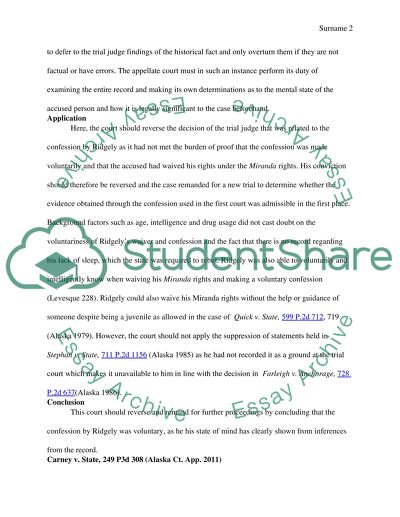Cite this document
(“Alaska law- Voluntariness of confession: State's Memo in opposition of Essay”, n.d.)
Retrieved from https://studentshare.org/law/1631184-alaska-law-voluntariness-of-confession-states-memo-in-opposition-of-motion-to-suppress-confession
Retrieved from https://studentshare.org/law/1631184-alaska-law-voluntariness-of-confession-states-memo-in-opposition-of-motion-to-suppress-confession
(Alaska Law- Voluntariness of Confession: State'S Memo in Opposition of Essay)
https://studentshare.org/law/1631184-alaska-law-voluntariness-of-confession-states-memo-in-opposition-of-motion-to-suppress-confession.
https://studentshare.org/law/1631184-alaska-law-voluntariness-of-confession-states-memo-in-opposition-of-motion-to-suppress-confession.
“Alaska Law- Voluntariness of Confession: State'S Memo in Opposition of Essay”, n.d. https://studentshare.org/law/1631184-alaska-law-voluntariness-of-confession-states-memo-in-opposition-of-motion-to-suppress-confession.


